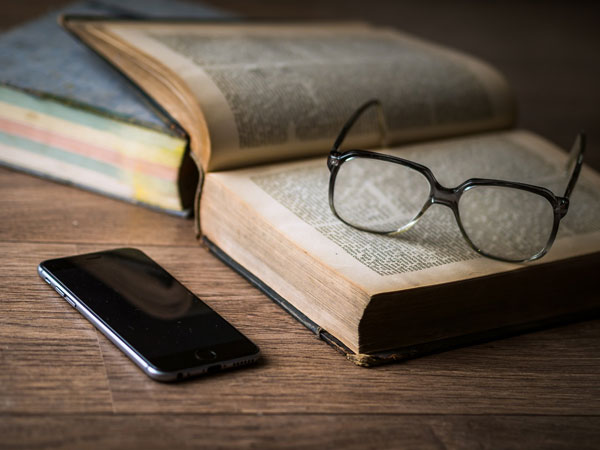The research journal points out the impact of mobile phones on students’ academic performance

[A phone and books. Photo credit to Pixabay]
A research journal written by Navpreet Kaur talks about the impact of mobile phone usage on the academic performance of students.
The study, which highlights both the advantages and drawbacks of mobile phone use, provides a comprehensive analysis of how these ubiquitous devices influence students’ academic lives.
Kaur’s research begins by addressing the direct impacts on teenagers and emphasizes the prevalence of anxiety in the modern digital and virtual society.
She asserts that “In contemporary digital and virtual society, anxiety is the affliction of life.”
This statement demonstrates the notion that a fast-paced, information-saturated environment contributes significantly to anxiety among individuals, particularly teenagers.
The pressure to stay connected and informed at all times aggravates this issue, making anxiety a common affliction in today’s society.
Among the various forms of anxiety linked to mobile phone usage is FOMO, or the “fear of missing out,” which is characterized by the fear of being without a cell phone, disconnected, or off the internet.
Another related condition is Nomophobia, defined as “the fear of being out of mobile phone contact”.
These anxieties contribute to the stress and distractions that mobile phones introduce into daily life.
The research then transitions to examining how these factors specifically affect the academic performance of students.
A primary concern is the distraction caused by mobile phones.
These devices are a significant source of interruption for students, particularly for those who struggle with time management.
Notifications, messages, and social media alerts can disrupt studying and classroom activities, leading to decreased focus and productivity.
Some students attempt to multitask during classes by using their mobile phones while studying or attending classes, which further diminishes their concentration and effectiveness.
Another critical issue identified in the research is sleep disruption.
The use of mobile phones before bedtime can disrupt sleep patterns, resulting in fatigue and decreased cognitive functioning during the day.
Poor sleep quality can badly impact concentration, memory, and overall academic performance.
On the positive side, mobile phones provide students with rapid access to information.
Educational apps, online resources, and collaborative tools enhance the academic experience by facilitating learning and peer interaction.
Also, mobile phones offer productivity tools such as note-taking apps and calendars, which help students organize and manage their time more effectively.
However, the research points out that these benefits are often overshadowed by the entertainment and social aspects of mobile phone use.
Particularly using phones for things like gaming or social media browsing for a long time every day can lead to health problems like neck pain, eye strain, and poor posture.
These health issues indirectly impact academic performance by affecting students' overall well-being and ability to concentrate.
Kaur’s research emphasizes the dual nature of mobile phone usage in the academic context.
While these devices offer lots of benefits in terms of information access and communication, they also pose substantial risks due to their potential for distraction and negative health benefits.
The study suggests that managing and mitigating these adverse impacts is crucial for students to harness the positive aspects of mobile phone use effectively.
In conclusion, Kaur’s journal provides a balanced perspective on the influence of mobile phones on academic performance.
It highlights the need for students to develop strategies to minimize distractions and manage their usage effectively to ensure that the benefits of mobile phones outweigh the drawbacks.
This comprehensive analysis serves as a valuable resource for educators, students, and parents seeking to understand and navigate the complexities of mobile phone use in the academic realm.

- HyoJung Lee / Grade 9
- St.Johnsbury Academy Jeju

![THE HERALD STUDENT REPORTERS [US]](/assets/images/logo_student_us.png)
![THE HERALD STUDENT REPORTERS [Canada]](/assets/images/logo_student_ca.png)
